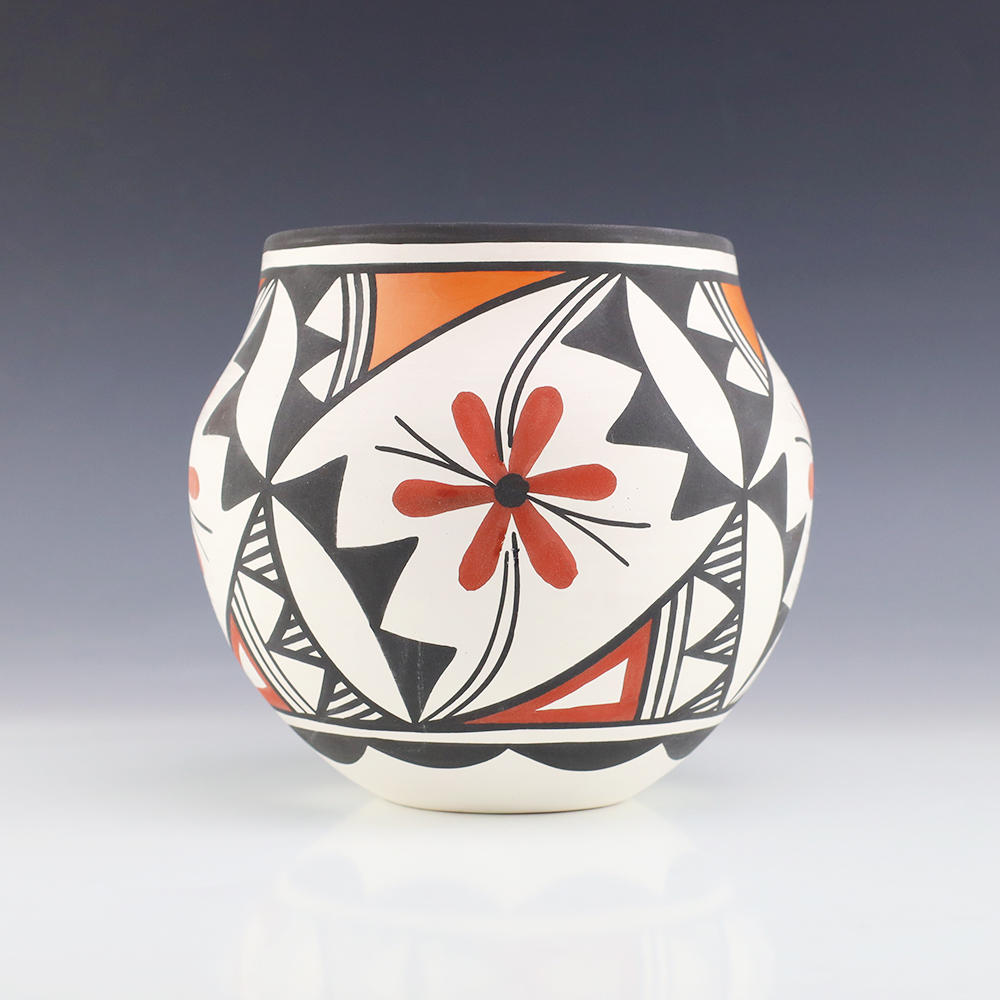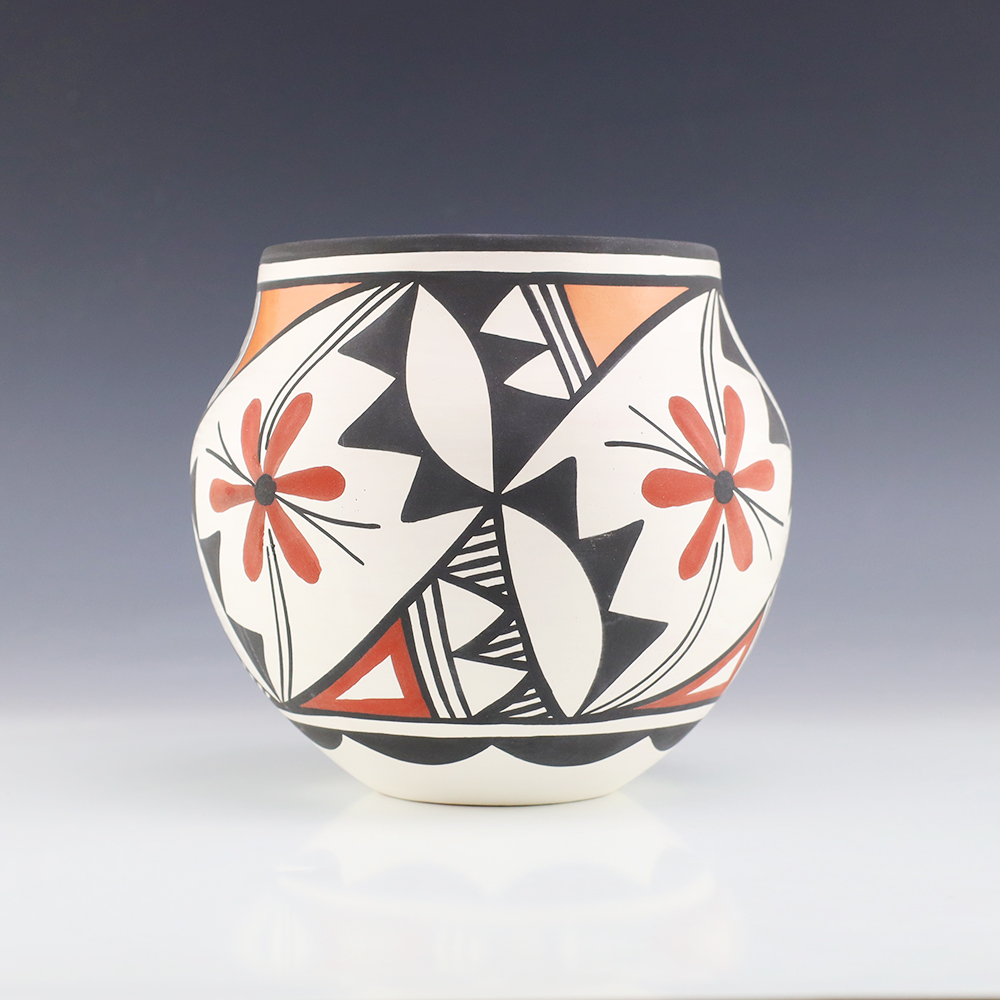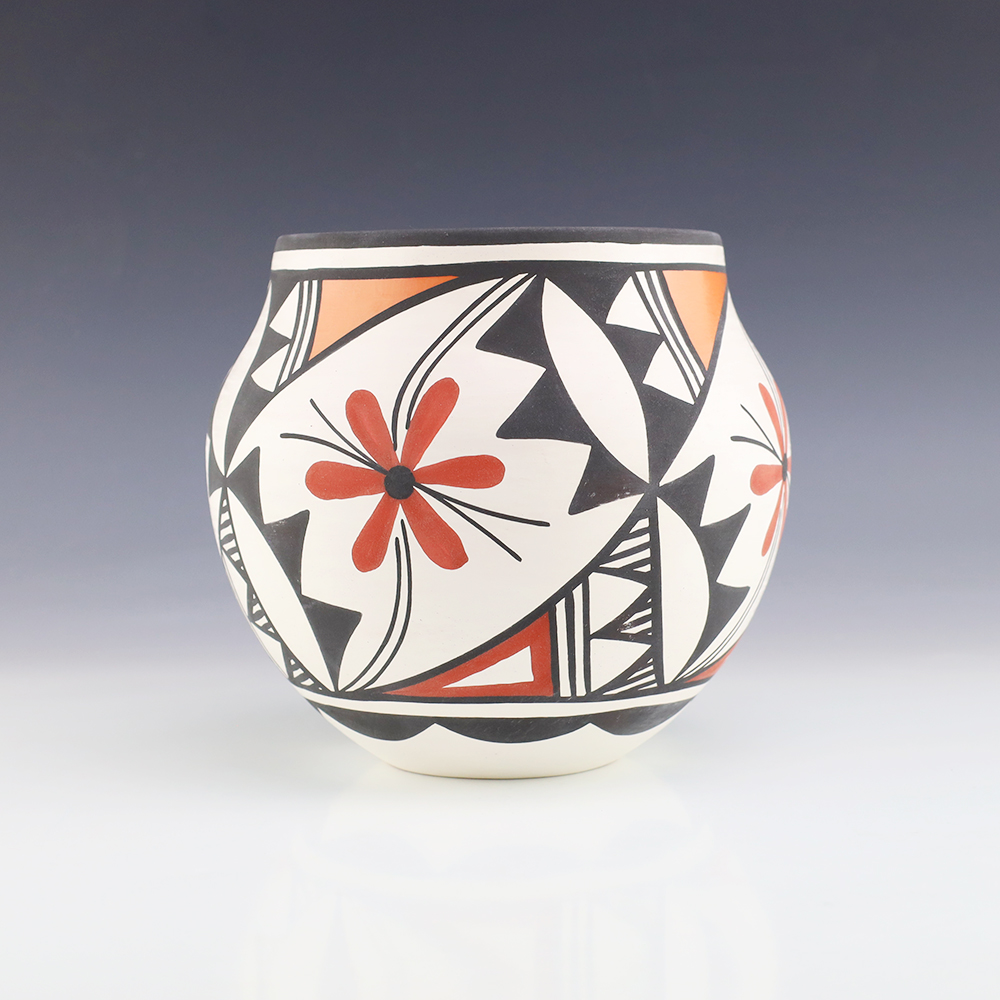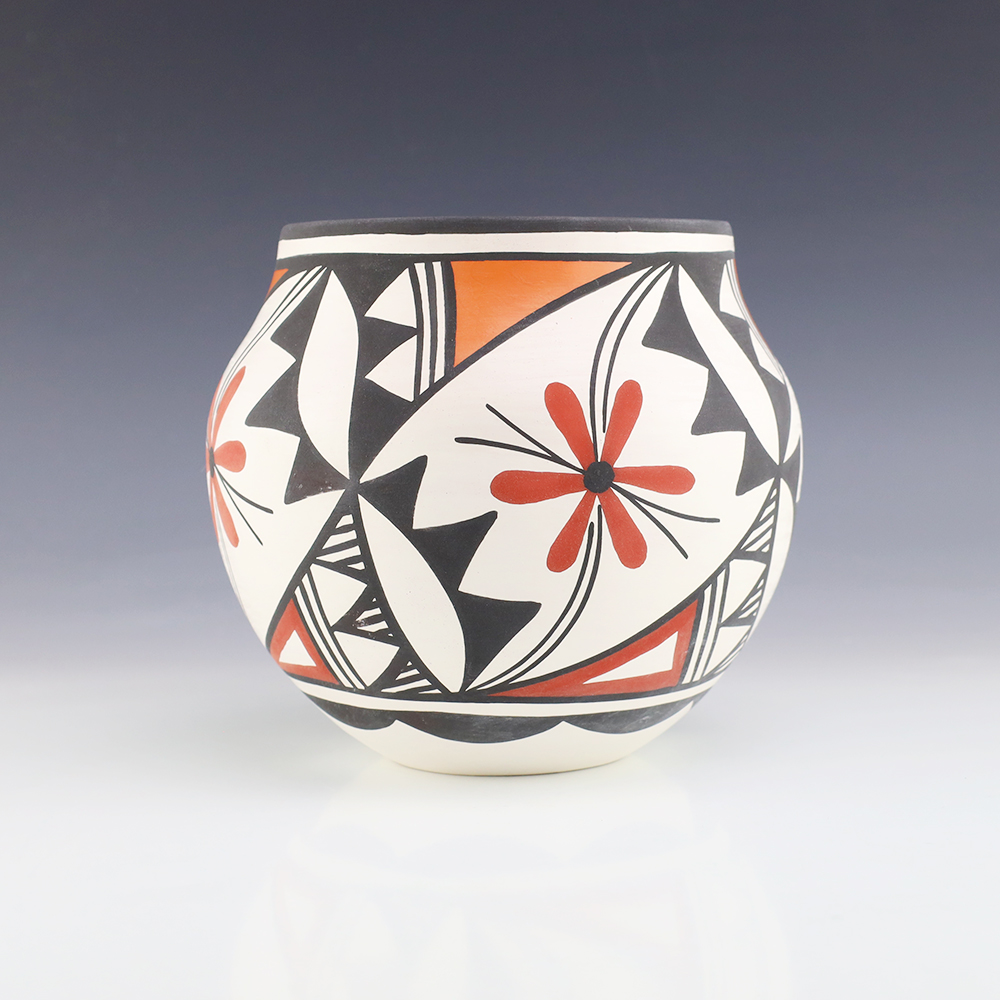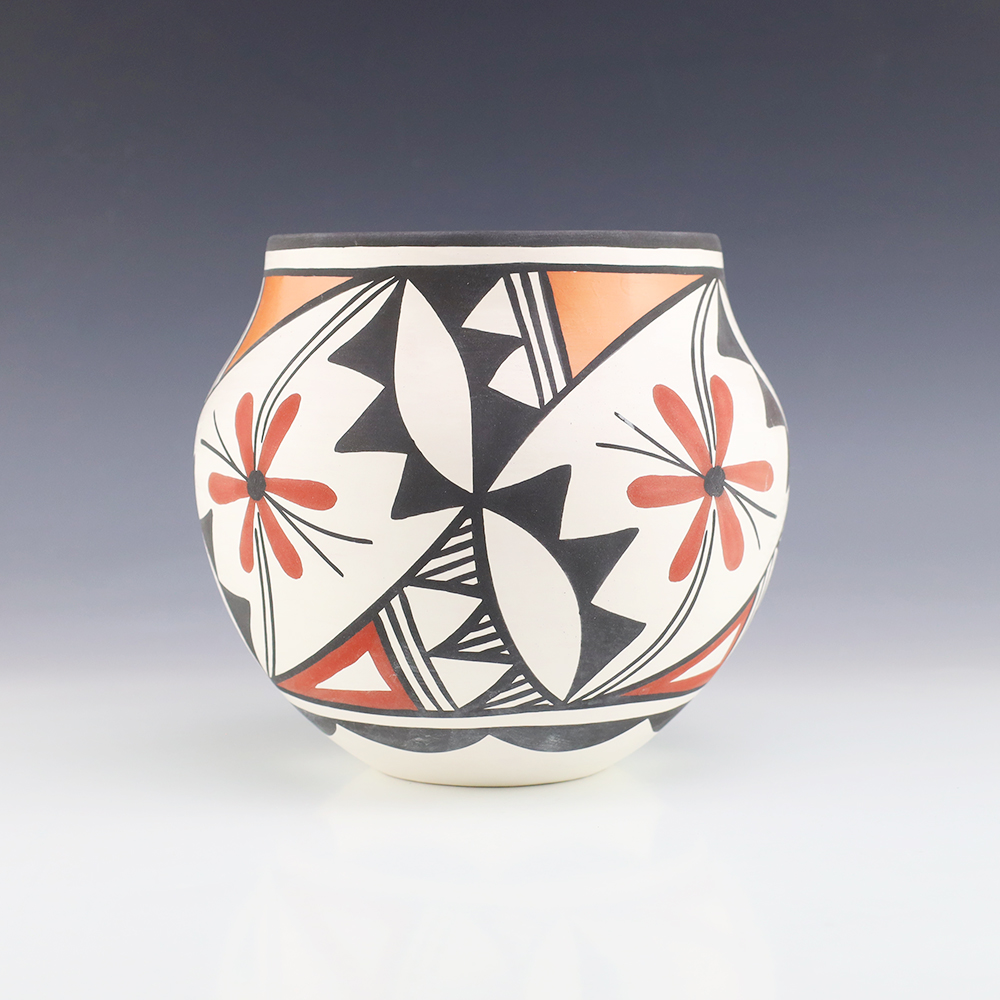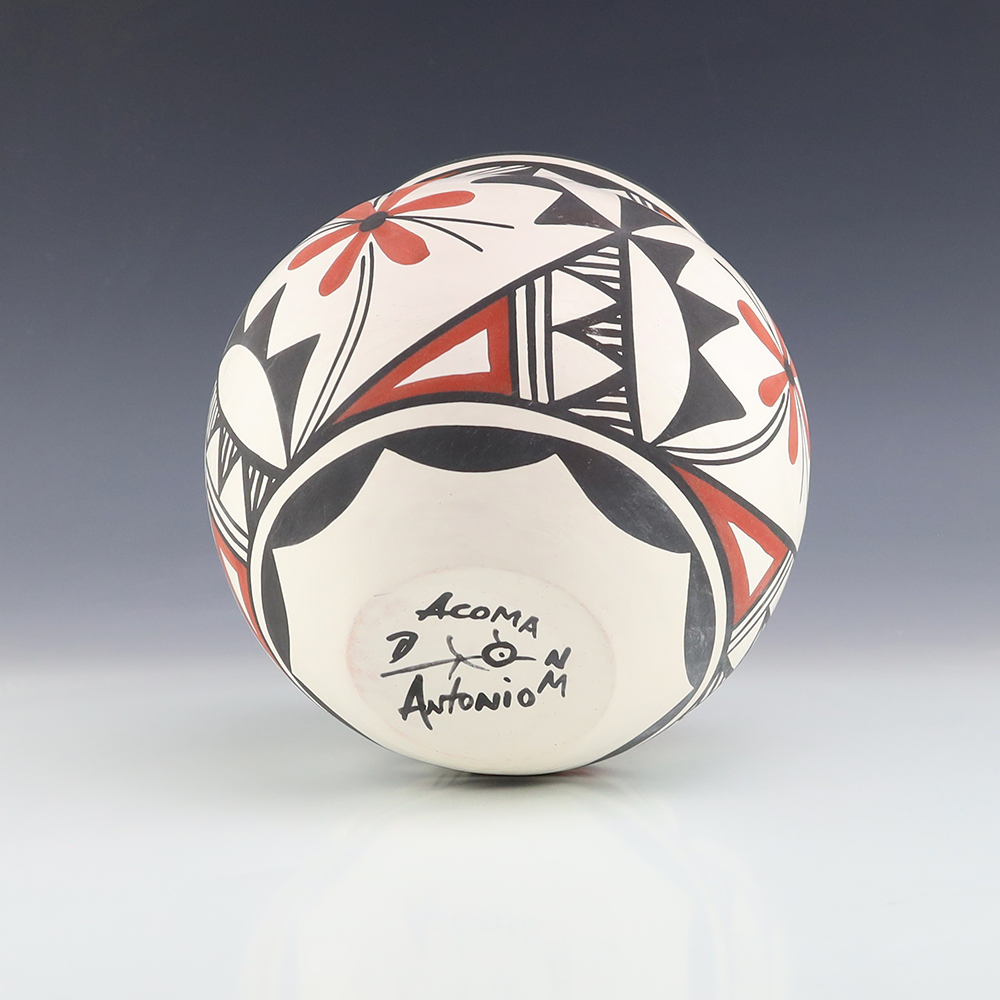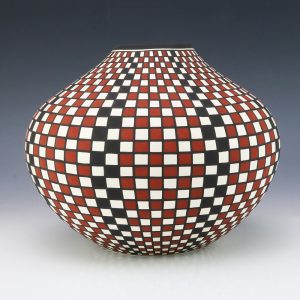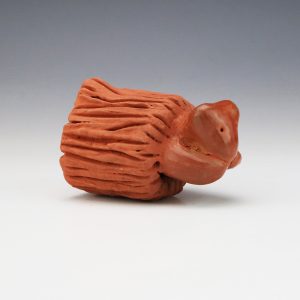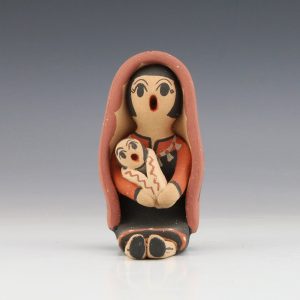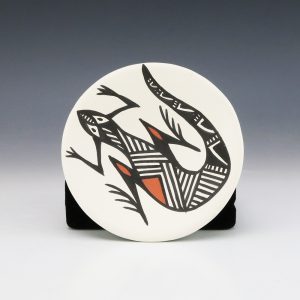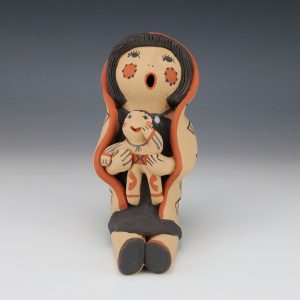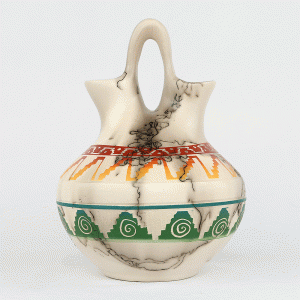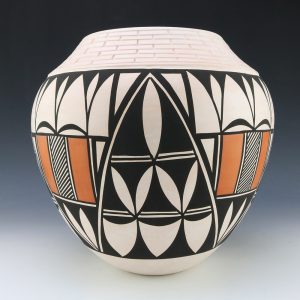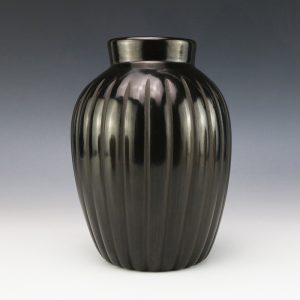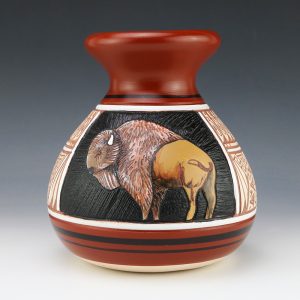Product Information
Categories: Pottery, Pueblo Pottery$105.00
1 in stock
SocialDescription
Brilliantly constructed by hand from natural clay, the pot is covered in intricate designs. Acoma potter, David Antonio created this lovely olla. David was born in 1961 to David Sr. and Hilda Antonio of the Acoma Pueblo. He was taught by his grandmother, Mary L. Antonio. A unique addition to any pottery or Native American art collection. Signed
5” tall x 5 5/8″ long x 5 5/8″ wide
Artist card included
The pottery is new but hand made and painted, so there may be imperfections. We try to capture every side in the photos but if you have any questions, please contact us.
Acoma Pueblo is regarded as the oldest continuously inhabited community in the United States. Traditional pottery of Acoma is strongly recognized for fluted rims, thin walls and geometric design. Acoma pottery is made using a slate-like clay found within the hills surrounding the Pueblo. When fired using traditional methods, this clay allows the potters to form very thin walls, a common and sought after characteristic of Acoma pottery.
Additional information
| Weight | 2 lbs |
|---|
Returns and Exchanges
There are a few important things to keep in mind when returning a product you purchased.You can return unwanted items by post within 7 working days of receipt of your goods.- You have 14 calendar days to return an item from the date you received it.
- Only items that have been purchased directly from Us.
- Please ensure that the item you are returning is repackaged with all elements.
Ship your item back to Us
Firstly Print and return this Returns Form to: Po Box 33114 Santa Fe, NM 87594 Please remember to ensure that the item you are returning is repackaged with all elements. For more information, view our full Returns and Exchanges information.Related Products
POTTERY VASE BY PAULA ESTEVAN ACOMA
This eye dazzler was hand made by Acoma potter Paula Estevan. Paula was born in Acoma Pueblo in 1967. She learned the art of making pottery in the traditional way from her mother, Patricia Estevan, and from Mary Chino and Victoria Garcia. She’s been producing pottery since 1986. Paula’s hand...
NATIVE AMERICAN SANTA CLARA POTTERY BEAR BY BIRDELL “VINE FLOWER” BOURDON
A charming addition to any art or pottery collection. Birdell “Vine Flower” Bourdon from the Santa Clara Pueblo, made this pottery bear with natural clay. Birdell continues a long tradition of hand coiling pottery. She was taught the traditional methods by her mother, Marie Sisneros Askan, and she has been...
JEMEZ POTTERY STORYTELLER BY ANISSA FRAGUA
This wonderfully painted storyteller was handmade by Jemez Pueblo potter Anissa Fragua and depicts a woman holding a child and a wedding basket. Anissa uses both the coil method and pinch method to create her pottery piece and as in traditional storytellers, Anissa’s storytellers have their mouths open. Storytellers represent the...
LIZARD ACOMA POTTERY PLATE BY JOSEPH BEAR ROUTZEN
Acoma potter, Joseph Bear Routzen made this outstanding pottery plate. Traditionally made and fired. A unique addition to any pottery or Native American art collection. Signed 1/4” tall x 3 1/8″ long x 3 1/8″ wide Artist card included The pottery is new but hand made and painted, so there...
NATIVE AMERICAN JEMEZ POTTERY STORYTELLER BY EMILY FRAGUA TSOSIE
Jemez potter Emily Fragua Tsosie hand crafted this lovely pottery storyteller, which depicts a woman holding a child. Emily uses both the coil method and pinch method to create her pottery piece and as in traditional storytellers, Emily’s storytellers have their mouths open. Storytellers represent the passing down of stories...
POTTERY WEDDING VASE BY MARJORIE JOE NAVAJO
This colorful pottery wedding vase was created by Navajo potter Marjorie Joe. Navajo pottery is is made through a process by which clay is poured into a mold, hand painted and hand etched by the potter, and then fired in a kiln. Each piece of pottery is beautiful and unique. ...
ACOMA POTTERY OLLA BY EARLENE ANTONIO NATIVE AMERICAN
Brilliantly constructed by hand from natural clay, the pot is covered in intricate designs. Acoma potter, Earlene Antonio created this lovely olla. A unique addition to any pottery or Native American art collection. Signed 8 1/8” tall x 8 5/8″ long x 8 5/8″ wide Artist card included Acoma Pueblo...
COCHITI PUEBLO POTTERY STORYTELLER BY JOHNNA HERRERA
Cochiti potter Johnna Herrera hand crafted this outstanding pottery storyteller, which depicts a lady with two children. Storytellers represent the passing down of stories orally through Pueblo tradition. Signed 4 3/8” tall x 3″ long x 2 5/8″ Artist card included
NATIVE AMERICAN SANTA CLARA POTTERY VASE BY ALVIN BACA
This marvelous pottery vase would make a great addition to any art or pottery collection. Santa Clara potter Alvin Baca was born in 1966 and is the son of noted potter Angela Baca, and the brother of David Baca and Leona Baca. He is known for his classic melon ribbed...
NAVAJO BUFFALO POTTERY VASE BY ANTIONETTE SHERMAN
Navajo potter Antionette Sherman hand crafted this marvelous pottery vase. Amazing colors! The prepared cast clay pot is hand etched with a buffalo and geometric designs. Then the vase is hand painted and kiln fired. Signed 6 3/8″ x 5 3/4″ x 5 3/4″ Artist card included Although Navajo potters...

